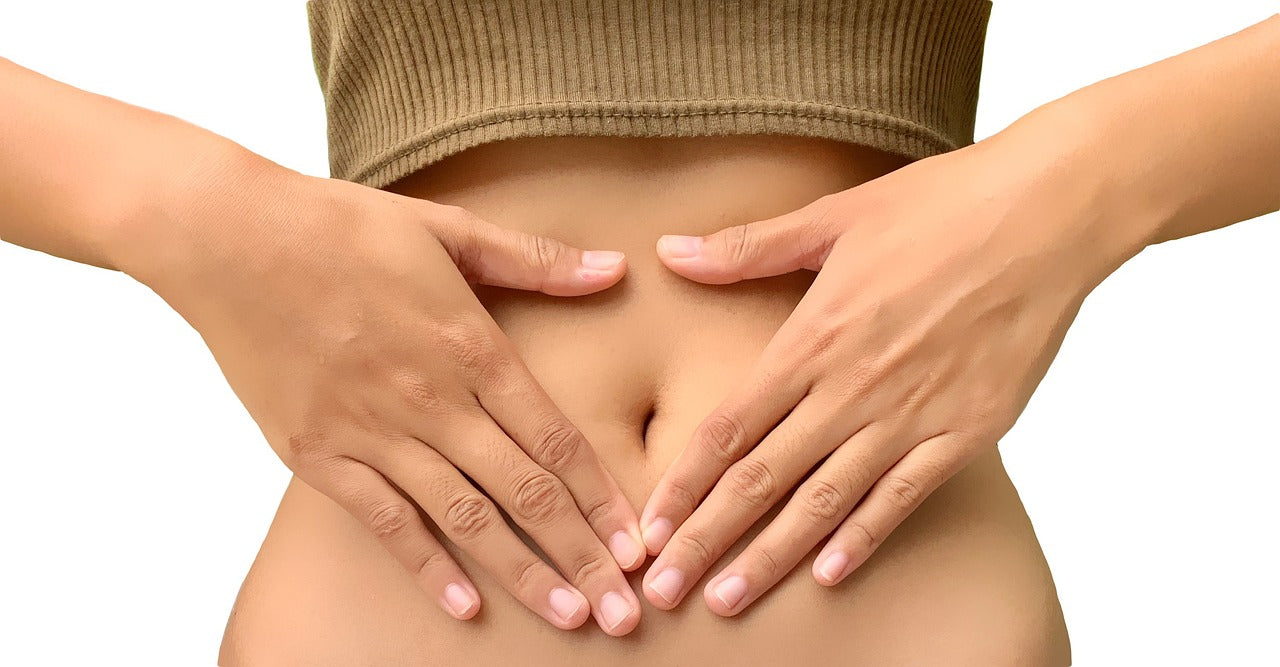Your Cart is Empty
30 Days Money Back Guarantee

Research has proven the use of probiotics as a promising avenue for enhancing colon health. The colon, also known as the large intestine, is a vital component of the digestive system, and its proper functioning is essential for overall well-being. Probiotics, beneficial microorganisms, have gained recognition for their potential to positively impact the colon's health. This paper reviews the current scientific understanding of probiotics, their mechanisms of action in the colon, and the potential benefits they offer, such as the prevention of colon-related issues and support for post-surgical recovery. We also discuss the implications of probiotics for colon health, including the need for further research and the importance of individualized treatment strategies.
The colon, the final part of the digestive tract, plays a pivotal role in processing waste, absorbing water and electrolytes, and hosting a diverse community of microorganisms. These microorganisms, collectively known as the gut microbiome, influence colon health in various ways. Probiotics, defined as live microorganisms providing health benefits when consumed in adequate amounts, have emerged as a potential tool for maintaining and improving colon health. This paper delves into the role of probiotics in supporting colon health, their mechanisms of action, and their potential benefits.
2.1. Composition and Significance of the Gut Microbiome
The gut microbiome is a complex ecosystem consisting of trillions of microorganisms, including bacteria, viruses, fungi, and other microbes. A balanced and diverse gut microbiome is crucial for colon health. It influences the absorption of nutrients, production of important metabolites, and protection against harmful pathogens.
2.2. Probiotics: The Beneficial Microorganisms
Probiotics are strains of bacteria or yeasts that, when ingested, exert positive effects on health. They are found naturally in some foods and are available as dietary supplements. These beneficial microorganisms can contribute to the balance and diversity of the gut microbiome.
3.1. Restoring Gut Microbiome Balance
One of the primary mechanisms through which probiotics benefit colon health is by restoring balance to the gut microbiome. They promote the growth of beneficial bacteria and suppress the overgrowth of potentially harmful microbes.
3.2. Enhancing Gut Barrier Function
The gut barrier, a critical component of colon health, serves to prevent harmful substances from leaking into the bloodstream. Probiotics can strengthen this barrier, reducing the risk of inflammation and other colon-related issues.
3.3. Reducing Inflammation
Chronic inflammation in the colon can lead to various health issues, including colorectal cancer. Probiotics have been shown to help reduce inflammation and support the gut lining.
4.1. Preventing Constipation
Probiotics can enhance gut motility, ensuring that waste moves efficiently through the colon. This aids in preventing constipation and associated discomfort.
4.2. Alleviating Irritable Bowel Syndrome (IBS)
Individuals with Irritable Bowel Syndrome often experience colon-related symptoms. Probiotics can help alleviate these symptoms and provide relief.
4.3. Managing Inflammatory Bowel Disease (IBD)
Inflammatory Bowel Disease, including Crohn's disease and ulcerative colitis, can be challenging to manage. Probiotics may play a role in reducing inflammation and supporting the gut lining in individuals with IBD.
4.4. Reducing the Risk of Colon Cancer
A balanced gut microbiome, influenced by probiotics, can help reduce the risk of developing colon cancer. This is achieved by promoting a healthy colon environment and reducing factors that contribute to carcinogenesis.
4.5. Post-Surgical Recovery
After colon surgery, probiotics can help restore gut health, reduce complications, and expedite recovery. Their use in post-surgical recovery is a topic of growing interest.
When dietary sources are insufficient or in cases where specific strains are needed, probiotic supplements can be beneficial. It is essential to select a supplement that aligns with individual health goals, considering factors such as strain specificity, colony-forming units (CFU), and storage requirements.
Colon health, like many aspects of health, is highly individualized. It is important to consult a healthcare professional before making significant changes to one's diet or starting a new supplement regimen, especially for individuals with underlying health conditions.
Probiotics offer substantial promise in enhancing colon health through their ability to restore gut microbiome balance, strengthen the gut barrier, and reduce inflammation. They provide numerous benefits, including preventing constipation, managing IBS and IBD, reducing the risk of colon cancer, and supporting post-surgical recovery.
Although probiotics have shown significant potential, it is crucial to recognize that individual responses may vary. Further research is necessary to determine the most effective strains and dosages for specific colon-related issues. Overall, probiotics represent a promising frontier in the quest for improved colon health and overall well-being